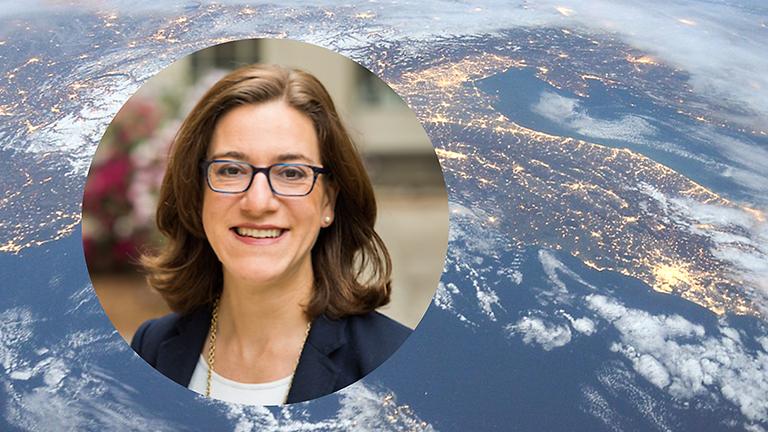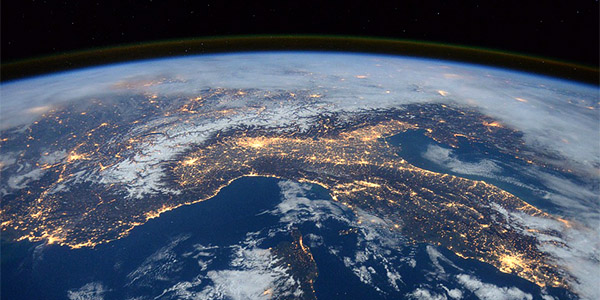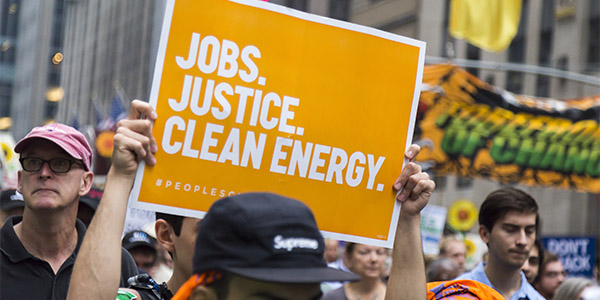
SOLVING CLIMATE:
HUMANISTIC PERSPECTIVES FROM MIT
In this ongoing series, MIT faculty, students, and alumni in the humanistic fields share perspectives that are significant for solving climate change and mitigating its myriad social and ecological impacts. Parrish Bergquist earned her PhD in political science and urban and regional planning from MIT in 2019. Today she is a post-doctoral associate with the Yale Program on Climate Change Communication, where her research centers on public opinion about the environment and climate change, policy responsiveness to public opinion, and the implications of political polarization for environmental policy, and designing effective climate policies.
Q: In what ways are the research, insights, and perspectives from your fields significant for addressing global change and its myriad ecological and social impacts?
Bergquist: The political challenges of addressing climate change are at least as thorny as the technological challenges, though perhaps in different ways. My fields — planning and political science — have contributed valuable insights about why and how decisions are made about climate change, and the consequences of these decisions. I work on these questions from several perspectives: how do our elected leaders engage with environmental policy questions; how does the public engage with these questions; and how does the interaction between the public and elected leaders shape views and decisions?
My work on public attitudes about climate change brings into high relief the differences between an engineer’s and a social scientist’s perspective on the climate challenge. To shift the United States to a cleaner, less carbon-intensive energy system, we need to build a lot of new electricity infrastructure, such as long-haul transmission lines and storage facilities. We have the technology to do this.
But in one of my projects, we looked at public receptiveness to a major new power line proposed to carry wind-generated electricity across several states in the Midwest. The proposed power line makes sense from an economic and a technological perspective. The project’s success, however, ultimately depends on residents’ willingness to accept it, and this depends on how the project’s aesthetic, economic, and technological characteristics fit with socially constructed meanings associated with local environments.|

"No matter how technically attractive a particular technology is, its viability for solving the climate crisis ultimately depends on public acceptance."
In another project, my coauthors and I investigated public support for a new political strategy encapsulated in policies like the Green New Deal and New York’s Climate Leadership and Community Protection Act, which passed in 2019. These programs bundle social, economic, and climate policy to directly take on inequities in the burdens imposed by climate change and climate policy.
In our paper, we found broad support for this holistic approach to addressing climate, social, and economic challenges, and we were able to pinpoint specific policies — like electric car mandates or funding for carbon capture technologies — that either expand or reduce support for the overall bundle. These contributions are crucial, because no matter how technically attractive a particular technology is, its viability for solving the climate crisis ultimately depends on public acceptance.
Joining the fields of political science and planning
Political science is about understanding how power is distributed in a society, the mechanisms by which it operates, and its consequences for people’s lives. The planning field applies theories and concepts from political science, other social sciences, and physical sciences to critically assess how decisions about the built environment, natural environment, and social systems will shape the way we can respond to a changing climate. When applied to decision-making about climate change, both fields are contributing insights that are crucial for identifying the levers for influencing policy, engaging people in policy change, and designing and implementing effective climate and energy policies.
The role of financial influence in climate change politics
Political science scholarship assessing the role of money in politics has also changed my perceptions of the political world and climate change as a political issue. Moneyed interests operate in complex and surprising ways, influencing which ideas rise to prominence in political debate, how we understand and discuss issues, who enters and succeeds in politics, and the institutional pathways through which voters and elected officials engage with politics.

"What gives me hope? I’m encouraged to see young voters, activists, and politicians prioritizing climate change and linking it to a broader focus on social and economic justice."
Q: What dimensions of the emerging climate crisis affect you most deeply — causing uncertainty, and/or altering the ways you think about the present and the future? When you confront an issue as global and formidable as climate change, what gives you hope?
Bergquist: It can be overwhelming to consider the range of potential climate impacts, the uncertainty around how we will adapt, and the distribution of costs and benefits that our adaptation decisions will impose. The science is clear that climate change is happening and human-caused, but scientific projections about its impacts are uncertain, particularly at local scales. In part this is because locally scaled climate impact modeling is difficult, and in part it’s because the impacts of climate change depend on which decisions we take now and in the coming years.
The devastating losses that could occur in both natural and human systems because of storms, floods, and wildfires is deeply concerning to me. I worry about parts of the world where the environment may become uninhabitable and livelihoods untenable, and what will happen to the human, animal, and plant life that inhabits these places.
What gives me hope? Americans are increasingly concerned about climate change, and people are mobilizing as we can see from the advent of groups like the Sunrise Movement and the Fridays for Future demonstrations. These young activists’ passion, courage, principle, and dedication gives me inspiration and hope. Even young conservatives seem to be thinking differently about this problem than the older generation on the political right.
This is evident from a report I wrote recently. In the report, we show that young Republicans are more likely to shift toward understanding that climate change is human caused than to shift toward the party-line skeptical view of the human causes of climate change. I’m encouraged to see young voters, activists, and politicians prioritizing climate change and linking it to a broader focus on social and economic justice.
Series prepared by MIT SHASS Communications
Office of Dean Melissa Nobles
Editorial and Design Director: Emily Hiestand
Consulting Editor: Kathryn O'Neill
Suggested links
Series: Solving Climate | Humanistic Perspectives from MIT
Parrish Bergquist website
MIT Department of Political Science
Yale Program on Climate Change Communication
MIT Energy Initiative | Renewable Energy Sources
Related Stories:
Environmental regulation in a polarized culture
LobbyView program increases transparency in lobbying.





